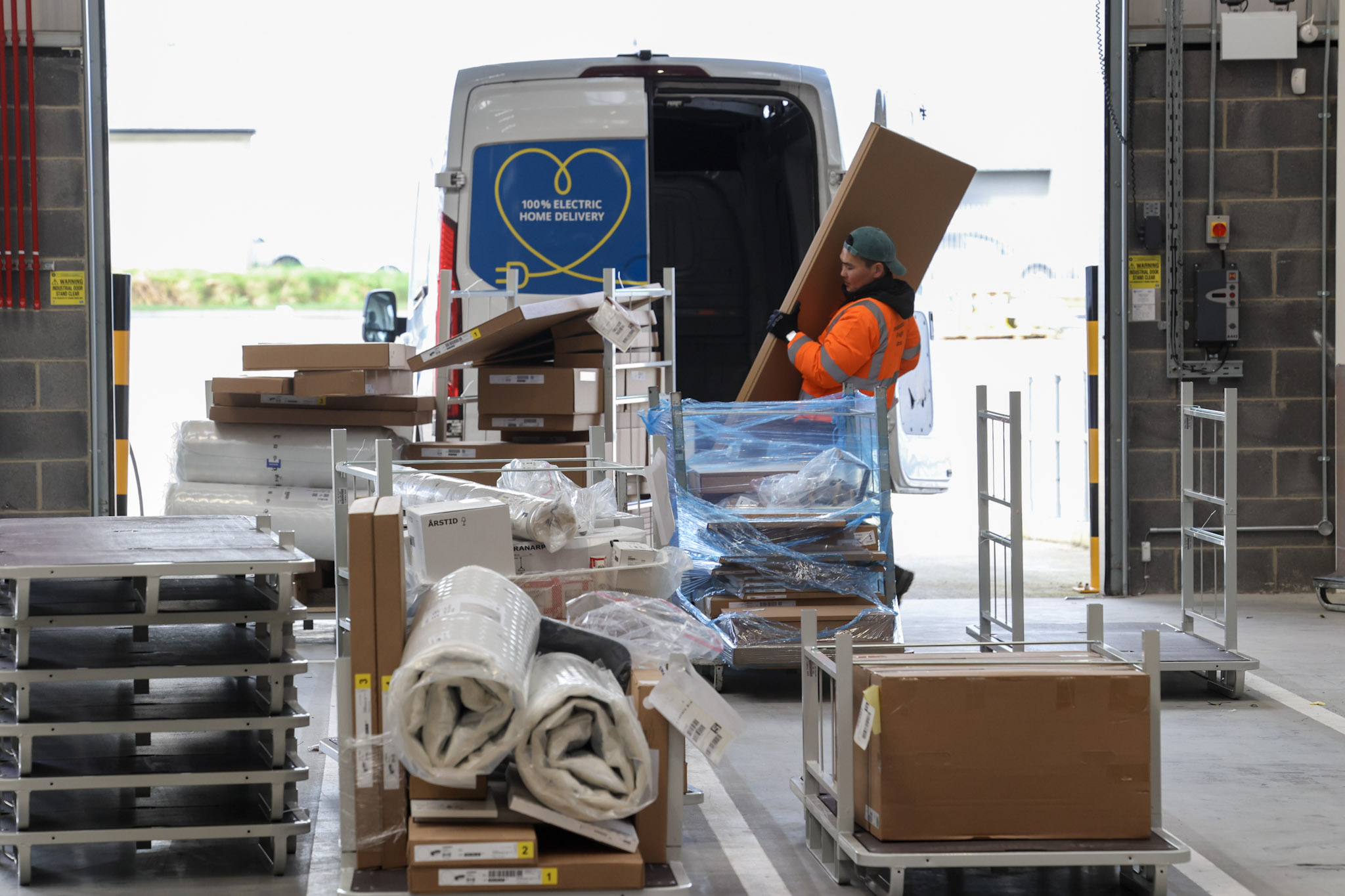Retail spending grew by just over 4% in November as shoppers looked for deals and bought ahead for Christmas, according to the BRC. Those deals started earlier than usual as retailers launched Black Friday campaigns sooner than they had in previous years. The trend of online sales decline slowed, although a number of categories continue to be in decline in a way that could threaten some retailers’ chances of survival, says KPMG’s Paul Martin. Meanwhile, Barclaycard saw card spending rise by 3.9%, as shoppers spent more on essential items as costs – especially energy bills – rose, but spending on non-essential items slowed.
BRC: retail sales growth lags behind inflation
Total retail sales grew by 4.2% in November, compared to the same time last year, according to the BRC/KPMG Retail Sales Monitor for November 2022. That’s behind the 5% growth reported a year earlier but above the trend of 2.6% growth over both the three and 12 month averages. But the BRC points out that record levels of inflation – consumer price inflation was at 9.6% in the year to October 2022 – mean the rise in sales will mask a larger fall in the amount, or volume, of goods that shoppers are buying.
Online sales fell by 0.4% in the four weeks to November 26 – marking a slowing in the rate of decline, which was 17.9% down last November, a year on from Covid-19 store closures. The trend is for decline, over both three (-3.1%) and 12 months (-12.3%). Some 46.1% of retail sales took place online. That’s down from 48.9% a year earlier.
At the same time, in-store spending grew but at a slower rate than in previous months.
Paul Martin, UK head of retail at KPMG, says: “Black Friday bargains saw retail sales grow by over 4% in November and was a much-needed boost both on the high street and online. Household appliances, footwear and furniture saw positive sales growth both in store and online as consumers sought out good deals on designer items and started to prepare for Christmas gatherings at home. However, some categories such as toys, computing and baby equipment have now seen several months of negative sales figures that even the festive boost has not been able to reverse.
“As we enter the last crucial few weeks of the year, retailers will be hoping that consumers continue to focus on the Christmas feel good factor. For some struggling retailers hit hard as consumer confidence and spending declines, and costs continue to rise, the next few weeks could be critical to their survival. Retailers are well aware that in the current environment it is a battle to attract and retain every customer. Given the economic headwinds for the year ahead, with consumer behaviour expected to evolve further as shoppers look to trade down and purchase less, understanding and meeting customer needs will be mission critical for retailers, and it’s a job that keeps getting harder.”
How shoppers spent
Sales, measured on a like-for-like (LFL) basis that strips out the effect of store and business openings and closures, were 4.1% up on last November, when they had risen by 1.8%. They were also ahead of the average growth over both three (+2.3%) and 12 months (+1.2%).
Food sales grew by 5.8% in total over the three months to November, and by 5.5% LFL – above the 12 months average (+2.2%). Food sales grew in November compared to a year earlier.
Non-food sales grew in November alone, but in the three months to November total sales were flat (0.0%) compared to the same time last year, and down by 0.4% LFL. That’s behind the 3% average growth over 12 months.
Over the same three months period, in-store sales of non-food items grew by 2.2% year-on-year in total, and by 1.6% LFL. That’s below 12-month growth of 26.6%.
Helen Dickinson, chief executive of the British Retail Consortium (BRC), says: “Sales picked up as Black Friday discounting marked the beginning of the festive shopping season. However, sales growth remained far below current inflation, suggesting volumes continued to be down on last year. As the weather began to turn, customers were quick to purchase winter warmers, such as coats, hot water bottles, and hooded blankets. Black Friday discounts also boosted sales of home furnishings as many households traded big nights out for budget nights in.
“Despite facing huge cost pressures, retailers are doing all they can to keep prices affordable for all their customers. But, the cost of living crisis means many families might dial back their festive plans. Yet, with three weeks to go, there is still plenty of time for the Christmas cheer to bring sales home this Christmas.”
Barclaycard: essential spending rises with energy bills – while non-essential spending slows
Spending on debit and credit cards grew by 3.9% in November as shoppers tightened their purse strings amid rising living costs and higher energy bills, says Barclaycard. But that’s still well below the rate of inflation. Spending on essential items grew by 7.1% in November, while non-essential spending grew by 2.3%. In the essential category, shoppers spent more at supermarkets (+6.5%) as prices rose and as shoppers stocked up ahead of Christmas. They also spent more on utilities (+40.1%) as many put their heating on for the first time. In the non-essential category, sales fell faster at clothing (-3%) and department stores (-1.5%) than in the previous month, but entertainment benefited (+11.3%) as shoppers bought tickets for events from festivals to the cinema, and spending was also up at bars, pubs and clubs (+4.1%), likely to be down to watching sporting events.
In a parallel consumer survey of 2,000 UK adults, 68% say they are finding ways to save energy at home, while 54% plan to cut discretionary spending in order afford their energy bills. Two-thirds (66%) say they will buy fewer clothes and accessories, 50% plan to cut down on Christmas spending, and 57% plan to buy fewer gifts for family and friends while 45% will scale back on parties and socialising.
Esme Harwood, director at Barclaycard, says: “As inflation and energy bills rise, Brits feel increasingly concerned about their already- squeezed personal finances. Cut-backs are affecting non-essential spending on clothing, department stores and restaurants. Many Brits intend to reduce festive spending on presents and parties in an effort to save money.
“Bars, pubs & clubs are bucking the trend – they enjoyed a strong early November thanks to the rugby, cricket and Formula 1. There’s a good chance this growth will continue as football fans gather to watch the later stages of the World Cup.”










